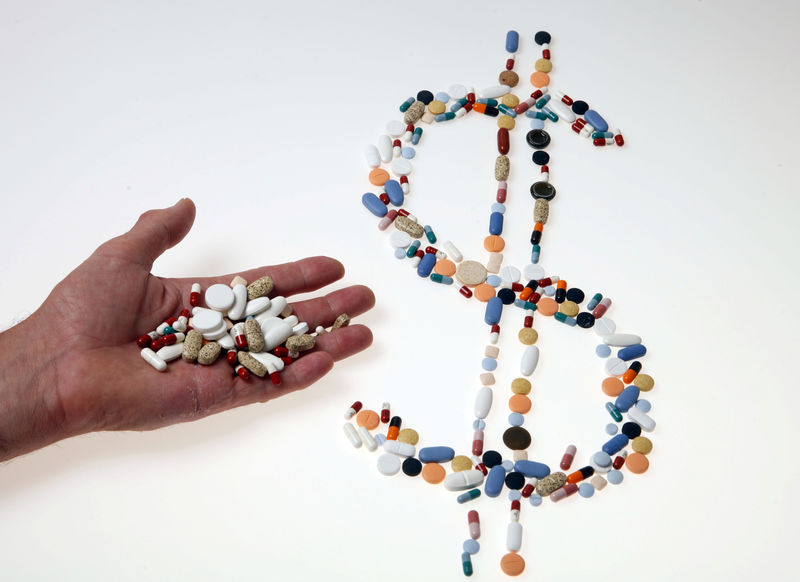By Susan Cornwell and Michael Erman
WASHINGTON/NEW YORK (Reuters) - The top Republican and Democrat on the U.S. Senate Finance Committee announced a proposal to lower prescription drug prices on Tuesday that could save $100 billion in costs to government healthcare programs, and said the committee would vote on the legislation on Thursday.
The committee's chairman, Senator Chuck Grassley, and its leading Democrat, Senator Ron Wyden, said in a statement they had been working on the bipartisan plan to "address the broken prescription drug supply chain" for six months.
"This legislation shows that no industry is above accountability," Grassley and Wyden said.
It is not clear how much support this, or any other drug pricing measure proposed in Congress, will receive ahead of 2020 presidential elections. But the cost of U.S. healthcare is sure to be a top campaign issue.
A spokesman said the White House was encouraged by the bipartisan package. "Today we are engaging with coalitions to help build support," spokesman Judd Deere wrote on Twitter.
The proposal aims to keep drug prices down - for both Medicare patients and those in the commercial market - by forcing pharmaceutical companies to pay rebates to Medicare if they raise prices of drugs more than the rate of inflation.
Those rebates would be equal to the difference between the price increases and the inflation rate.
The Senate's No. 2 Republican, John Thune, who is also a member of the finance committee, expressed some reservations about the proposed rebates, telling reporters this seemed to move away from free market forces.
The proposal also includes a cap on out-of-pocket costs for drugs covered under Medicare's Part D, which is for self-administered prescription drugs, as well as changes to the program's Part B, which covers physician-administered drugs.
The senators said the proposal would save taxpayers $100 billion from the Medicare and Medicaid programs. Beneficiaries would save $27 billion in out-of-pocket costs.
The Trump administration and Democrats in the House of Representatives have been working on their own plans to lower the cost of medicines for U.S. consumers.
U.S. President Donald Trump, a Republican, has struggled to deliver on a pledge to lower drug prices before the November, 2020 election. His administration is currently working to push through a rule that would tie some Medicare drug prices to the lower prices paid in other countries.
The administration earlier this month scrapped an ambitious policy that would have required health insurers to pass billions of dollars in rebates they receive from drugmakers to Medicare patients.

Also in July, a federal judge struck down a Trump administration rule that would have forced pharmaceutical companies to include the wholesale prices of their drugs in television advertising.